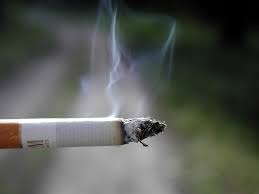
Despite these smoking precautions, plastic surgeons know that not every smoker abides by them. A few plastic surgeons will go as far as nicotine testing of their patients before surgery but most hope that their recommendations are followed…for the patient’s sake. An interesting question is how many smokers ‘cheat’ and does it affect the incidence of after surgery complication rates?
In the February 2013 issue of Plastic and Reconstructive Surgery, a study entitled ‘Plastic Surgery and Smoking: A Prospective Analysis of Incidence, Compliance and Complications’ was published. In it the authors examined nicotine use and how it affected plastic surgery outcomes. A total of 415 patients in a single plastic surgeon’s practice undergoing elective surgery under general anesthesis were studied over a two year period. Before surgery, urine samples were taken for nicotine metabolites and complications recorded for up to three months after surgery. Just over 1/3 of them had stated they quit smoking and just under 10% were admitted active smokers.
The study results showed that urine nicotine analysis demonstrated that 54/362 patients showed active smoking. Fifteen of these patients (4%) denied they were currently smoking. Patients who stated they had quit smoking were more likely to be falsify they were currently smoking than those who had never smoked. The smokers had higher overall complication rates and were more likely to undergo revisional surgery.
While this is a well-crafted and executed study, and the first time such a study has ever been conducted in plastic surgery, its results are not surprising. Most plastic surgeons have long surmised that patients do not always tell the truth about their smoking history even though it is in their best interest to do so. Nicotine does lead to a higher number of adverse outcomes of which wound healing issues is just the most notable one.
This study raises the question of what is a plastic surgeon to do. Should every patient be tested right before surgery and the surgery cancelled if the test is positive? If this was a practice policy and well known to the patient beforehand, I suspect the number of positive testers would go down.
Dr. Barry Eppley
Indianapolis, Indiana


